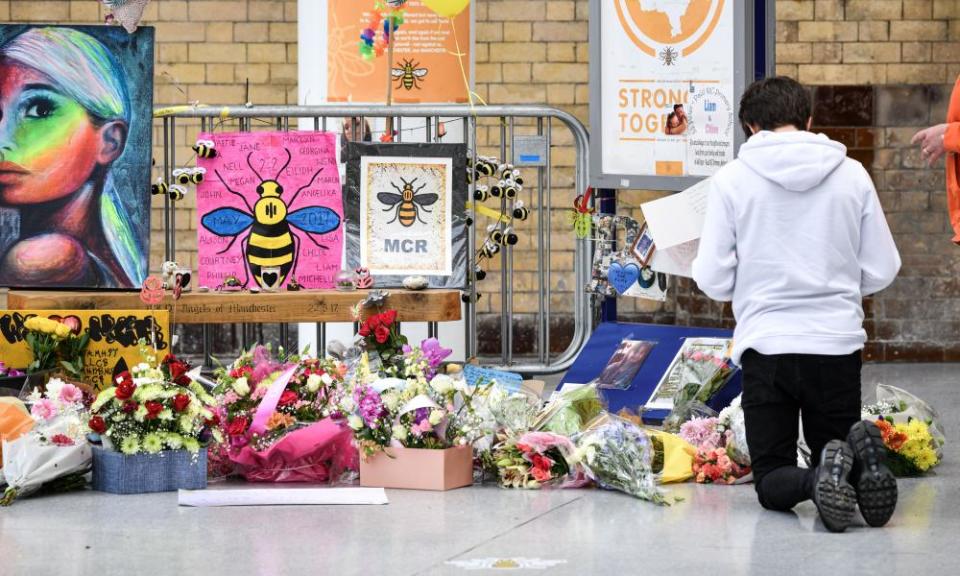Manchester Arena security firm not to blame for staff's inaction, inquiry told

The firm responsible for stewarding and security at Manchester Arena was not to blame if its staff “missed opportunities” to prevent the bombing, the public inquiry into the attack has heard.
Jonathan Laidlaw QC, representing Showsec, said on Wednesday that “primacy” for safety lay with the state and the police rather than the firm. He added that the firm “was not seeking to shift blame or to scapegoat” either.
Two of the Showsec stewards, Kyle Lawler and Mohammed Agha, who were present at the arena, were alerted to suicide bomber Salman Abedi’s suspicious presence roughly 15 minutes before the blast.
Lawler and Agha, who were 18 and 19 at the time, were informed by a member of the public that Abedi, all in black and with a large rucksack, looked “dodgy” but neither passed this on to the control room. Both men told the inquiry they were “conflicted” and unsure what to do.
The inquiry heard both stewards were part of a large, casual workforce, paid the minimum wage, with their training comprising largely of unpaid, online learning, done in their own time with it being possible to complete important training modules with a single click.
If the two stewards were found by the inquiry to have failed, Laidlaw said this failure could not be attributed to a lack of proper training provided by the company.
Laidlaw said Showsec’s role, as a provider of “crowd management services” was subordinate to that of the police and SMG, operators of the arena, and its staff had no right to stop or search anyone in public areas outside the arena, including the foyer where the bomb was detonated.
He said Greater Manchester police, with their experience in counter-terrorism, should have taken charge of safety at the arena and that a proper risk assessment by police “may well have identified the cracks in a system” prepared by two private firms.
Laidlaw admitted that a “breakdown in communication” had occurred with SMG over checking of the mezzanine area where Abedi hid for almost an hour.
The inquiry also heard from Home Office representative Cathryn McGahey QC who said the government would start a public consultation on “Martyn’s Law”, named after a victim, by the end of February. Among other provisions, the law calls for mandatory bag searches and metal detectors for large public venues.
The hearing continues.

 Yahoo Finance
Yahoo Finance 